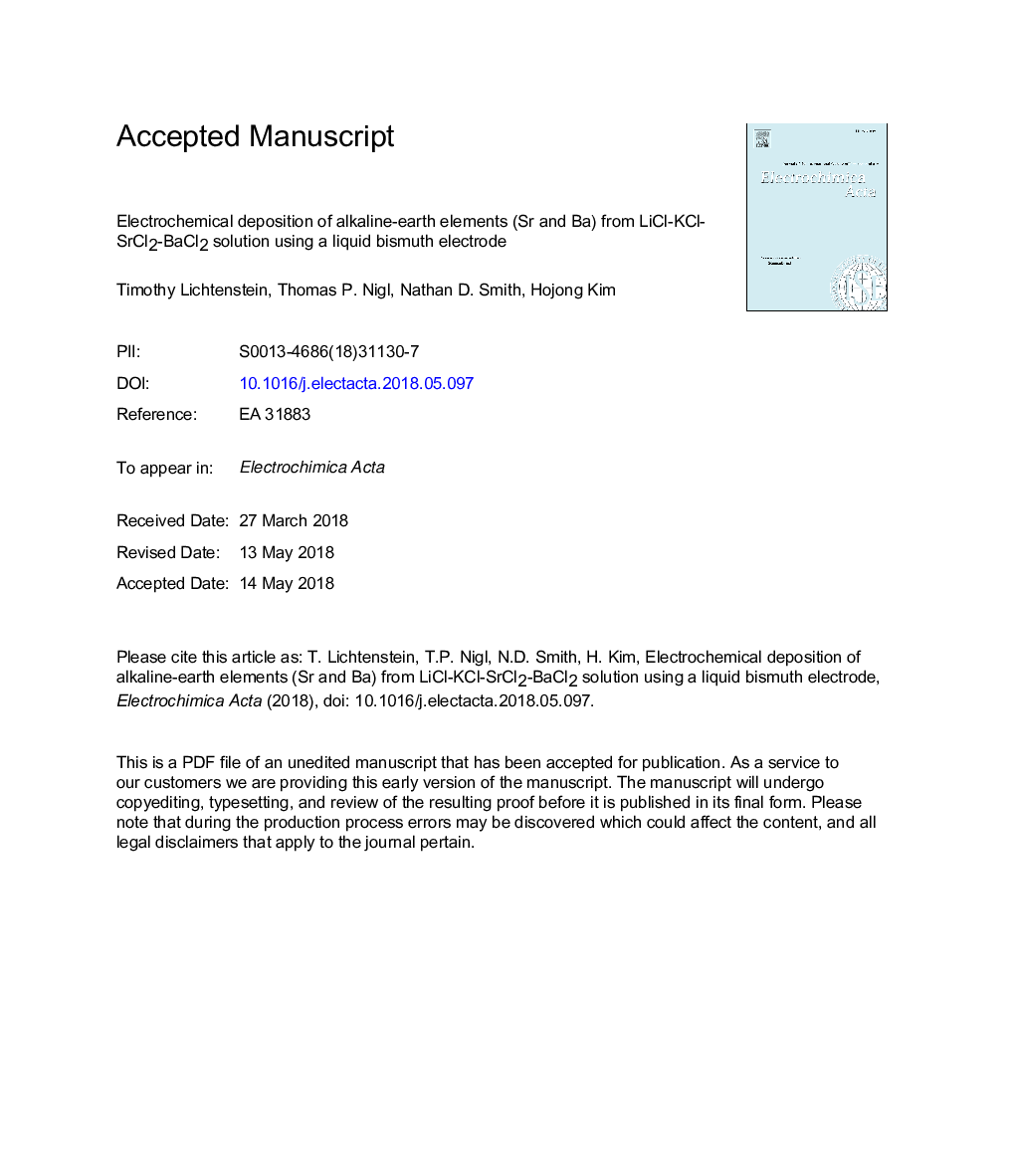| Article ID | Journal | Published Year | Pages | File Type |
|---|---|---|---|---|
| 6602482 | Electrochimica Acta | 2018 | 20 Pages |
Abstract
Electrochemical deposition of Sr and Ba into liquid Bi metal was investigated in LiCl-KCl-SrCl2-BaCl2 electrolytes at 500â¯Â°C as a means to separate stable alkaline-earth ions from the molten salts (eutectic LiCl-KCl) utilized for recycling used nuclear fuel, by leveraging the strong chemical interactions between alkaline-earth metals and liquid Bi. The liquid Bi electrodes were subjected to cathodic discharge up to 270â¯Câ¯g-1â¯at a constant current density of 50â¯mAâ¯cmâ2 in eutectic LiCl-KCl with the addition of 5â¯mol% total of SrCl2 and/or BaCl2. The use of Bi resulted in complex electrode reactions, leading to co-deposition of Sr (2.0-6.5â¯mol%), Ba (4.1-12.8â¯mol%), and Li (5.9-16.2â¯mol%), and coulombic efficiencies of 63-67% were achieved. The observed co-deposition was also supported via thermodynamic analyses of electrode potentials by incorporating the experimentally determined activity values of each alkali/alkaline-earth metal in Bi. The results of this work suggest that alkaline-earth fission products accumulated in molten salts (Sr2+ and Ba2+) can be recovered into liquid Bi by electrochemical separation, which could be employed as a critical step for recycling the process salt (LiCl-KCl) in order to minimize the generation of additional nuclear wastes.
Related Topics
Physical Sciences and Engineering
Chemical Engineering
Chemical Engineering (General)
Authors
Timothy Lichtenstein, Thomas P. Nigl, Nathan D. Smith, Hojong Kim,
